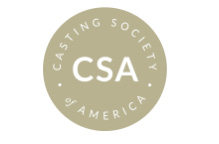DEFENDING AGAINST BROADWAY LEAGUE LAWSUIT COULD COST CASTING DIRECTORS MILLIONS

Casting directors could finance their own big-budget play or musical for what they may spend defending themselves against the Broadway League's antitrust lawsuit.
Merely complying with the League's request for evidence, a process known as discovery, could collectively cost casting directors as much as $4.7 million, a litigation support specialist said in a signed declaration filed in Federal Court. Earlier today, U.S. District Judge Gregory Woods denied the casting directors' motion to halt or "stay" discovery, which may require their lawyers to review as many as 3 million documents.
In its December suit, the League, which represents producers and theater owners, accused casting director companies of illegally fixing prices. The companies responded that in seeking contributions from producers for healthcare and pension benefits, they're attempting "to secure the basic workplace fairness enjoyed by nearly every other worker on Broadway." The League's lawsuit, the casting directors say, is an attempt to "exact crippling commercial leverage" in negotiations.
From the seven casting companies, the League requested five years of organizational charts, tax returns, audited financial statements, casting contracts, talent databases, and evidence of communication amongst themselves, including emails and text messages, among other information.
"The requests themselves are incredibly broad," Michael Dell'Angelo, the casting directors' lead lawyer, said in court. "The time and expense that it would take to respond to these is staggering." (The litigation support specialist, Charles Kellner, said his low estimate for collecting and reviewing the evidence is $760,000.)
At the end of the two-hour-plus pre-trial conference, Woods encouraged the two sides to submit to mediation and try to settle -- while completing discovery within 210 days.
"We're open to having discussions," responded Colin Kass, a lawyer for the League. Added Dell'Angelo: "We are eager to find a resolution."
The League's lawsuit accused the casting companies of conspiring by levying a 29 percent surcharge on productions. With the aid of Teamsters Local 817, also a defendant, the casting companies allegedly boycotted productions that didn't accept their terms.
"Broadway producers rely on price competition among casting companies to control costs, especially for productions in development," the League said in the suit, which was filed on Dec. 5.
The League said the casting directors feigned concern over health and retirement benefits. "The casting companies had never asked for or sought compensation for health and retirement benefits from their clients until they joined forces with the Teamsters and realized they needed an excuse to cartelize the casting services market."
Dell'Angelo denied that there is a boycott, conspiracy or any surcharges. "Because the benefit contributions were to be a percentage of an unspecified amount to be negotiated, they cannot constitute a `surcharge' or increase of any price in violation of the Sherman Act" -- referring to the first antitrust law, passed in 1890. He said that early-stage readings of new productions are going forward, with or without the participation of casting directors.
"Tell us what the problem is, because we don't see it," he said.


